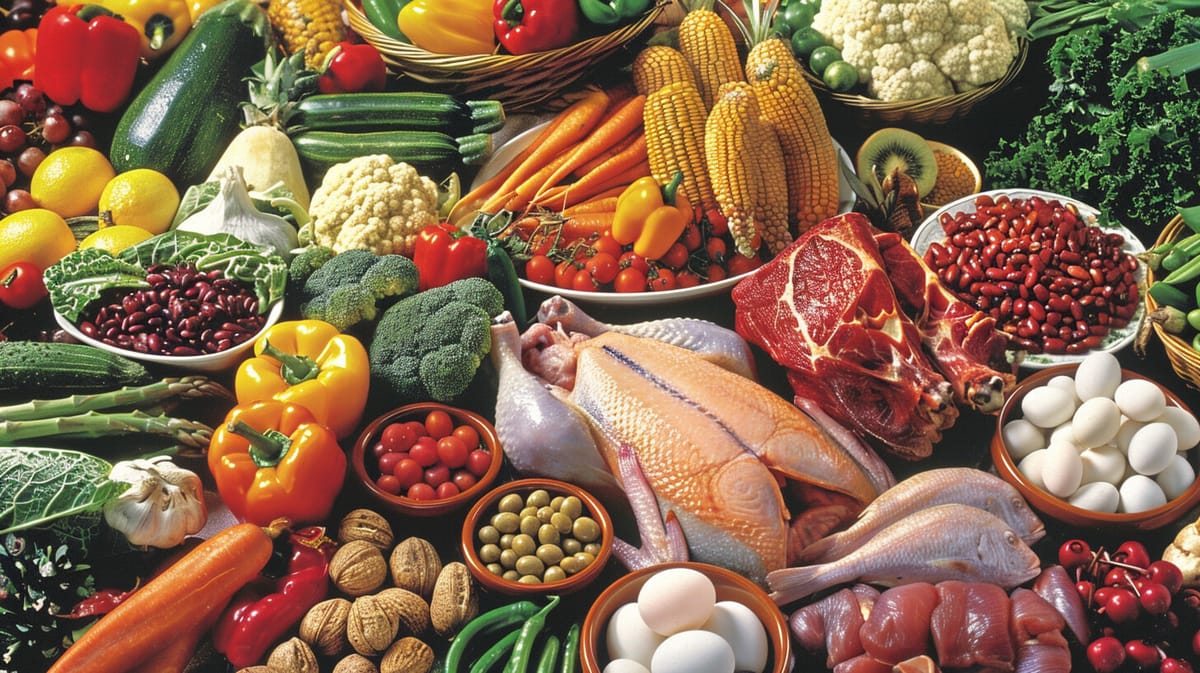10 Alarming Signs You're Not Getting Enough Protein: Why It Matters for Your Health

Introduction
Protein is a vital macronutrient that plays a crucial role in nearly every bodily function. It is the building block of bones, muscles, cartilage, skin, and blood, and it helps in the repair and building of tissues. While many of us might be aware of this fundamental fact, are we truly monitoring our protein intake effectively? In many cases, people are consuming less protein than their body actually needs, leading to various health issues.
Below, we will explore the critical signs that might indicate you are not consuming sufficient protein, the potential health risks associated with protein deficiency, and solutions on how to ensure adequate intake. This information is crucial for maintaining optimal health and preventing long-term damage to your body.
1. Muscle Loss
Muscle mass naturally decreases with age, but if you notice a faster rate of muscle loss, this might be a clear sign of protein deficiency. Protein serves as a critical component in maintaining muscle health by repairing muscle tissues and supporting muscle growth. Insufficient protein can lead to weakening muscles, reduced strength, and overall muscle wastem, which can significantly impact your daily activities.
2. Bone Fragility
Proteins are not only important for muscles; they also play a significant role in maintaining bone health. A diet low in protein can weaken your bones, making them more susceptible to fractures and breaks. This is especially crucial for older adults, as bone density tends to decrease with age, increasing the risk of osteoporosis.
3. Mood Swings
Protein helps to stabilize blood sugar levels, and a deficiency can result in mood fluctuations and irritability. This is because protein can mitigate the effects of rapid sugar absorption in the blood, leading to more balanced energy levels and mood stabilization.
4. Increased Susceptibility to Illness
Protein is vital for a robust immune system as it helps in the production of antibodies that fight against bacteria and viruses. Lack of sufficient protein can weaken your immune system, making you more susceptible to illnesses more frequently.
5. Poor Nail and Hair Health
Notice your hair thinning or your nails becoming brittle? Protein deficiency might be to blame. Insufficient protein intake can force your body to conserve available protein for more essential functions rather than supplying it to your nails and hair, which in turn affects their growth and health.
6. Slow Wound Healing
If your cuts and wounds take longer than usual to heal, lacking protein could be a critical factor. Protein is essential for cell regeneration and repair, and without it, the body's ability to recover from injuries or surgeries is significantly impaired.
7. Elevated Hunger and Snack Craving
Despite eating regular meals, if you find yourself constantly hungry or reaching for snacks, this might be a sign of protein deficiency. Protein has satiating properties that help keep you fuller for longer, which naturally reduces frequent hunger pangs.
8. Anemia
Protein is crucial for producing hemoglobin, a component of red blood cells that transports oxygen throughout the body. Low protein levels can lead to a form of anemia characterized by fatigue and weakness, affecting your overall energy levels and quality of life.
9. Energy Slumps
Experiencing occasional dips in energy is normal, but constant fatigue and energy slumps throughout the day may be due to inadequate protein intake. Protein provides a slow and steady source of energy, unlike carbs which can lead to spikes and falls in energy levels.
Conclusion
Ensuring you're getting enough protein is not merely about muscle building. It's about maintaining overall health, vitality, and quality of life. Incorporate a variety of protein-rich foods such as meats, dairy, legumes, and nuts into your diet. If you're unsure about your protein needs, consider consulting a nutritionist who can offer personalized guidance based on your individual health profile.
Understanding these signs and taking proactive steps to manage your protein intake can lead to significant improvements in your health and wellbeing.




